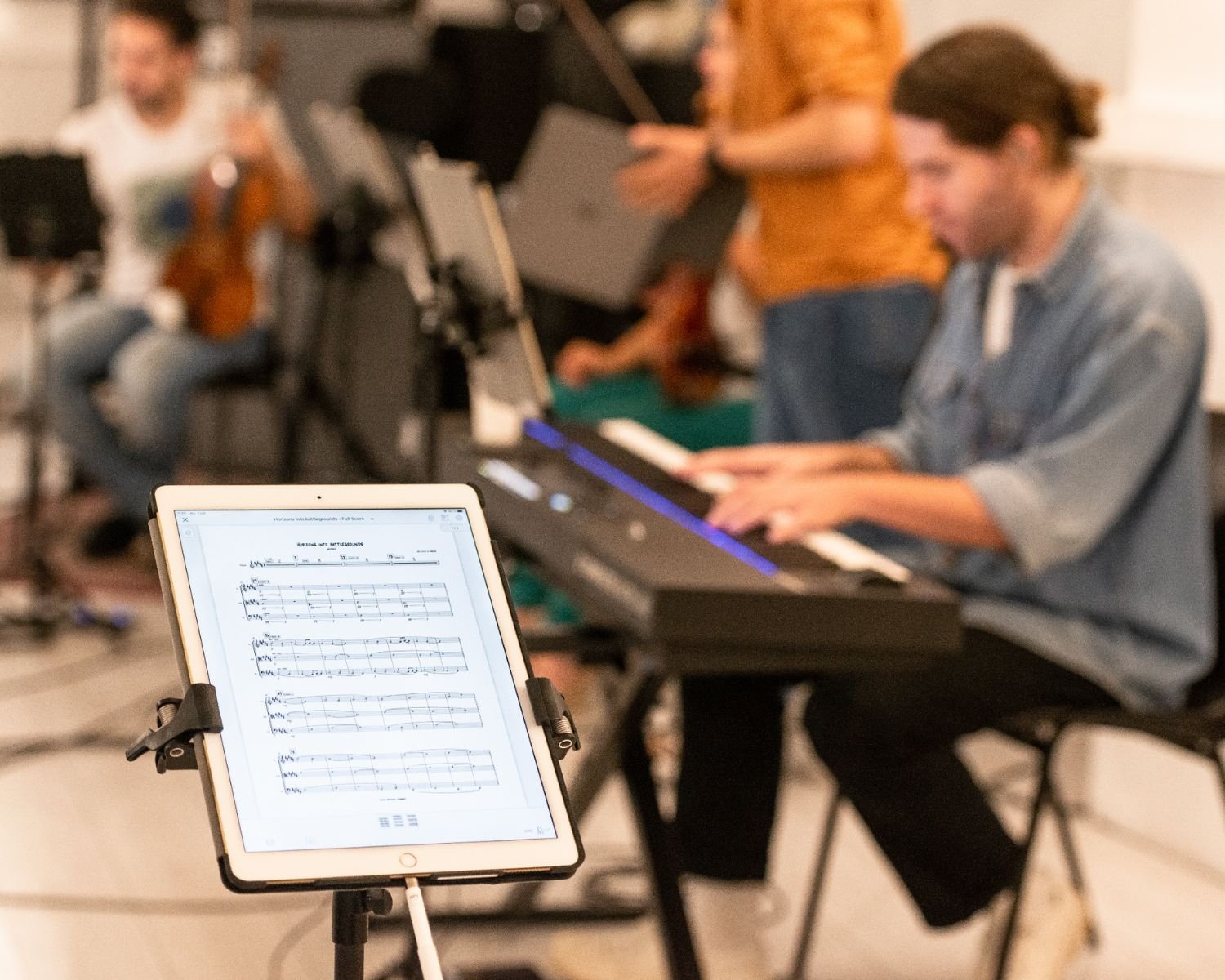10 terms you need to know to fit in with a group of musicians
Whether you want to become the leader of a rock band, create a piano-vocal duo, join an orchestra or practice the flute alongside your fellow trumpeter, the world of bands requires a certain vocabulary. Even if it's a hobby, learning a few common Anglicized terms will make it easier for you to integrate into a musical group. "Jam", "soundcheck", "setlist": discover the top 10 musician jargon terms you need to know before joining your first band!
Musicians' jargon: a lexical world apart
Rich and varied, the musician's lexical field reflects all the complexity of the musical world. This specialized vocabulary enables precise and efficient communication between musicians, describing technical aspects of musical practice. Why are there such typical expressions, often only understandable by musicians? Just like a language shared by the inhabitants of a country, a musician's language is a way of communicating and identifying with a community.
Technical terminology: what are we talking about?
Are you a music enthusiast and amateur musician? To be considered a musician in your own right, you'll need to master certain technical codes relating to the practice of music. Like any other specialized field, music has its own technical terminology, describing instruments, playing techniques, elements of music theory and aspects of sound production. Terms such as "legato", "staccato", "fret", "pickup", "tempo", "clef", and "modulation" are part of this lexicon. Music uses its own notation and symbols to represent sounds, rhythms, dynamics and other performance instructions. Although not strictly verbal, this visual "language" is a key element of the musician's lexical world.
Metaphors and abbreviations: everyday life for musicians
Does "having a groove" or "kicking some brass" sound familiar? Yet these are common expressions used by musicians to describe certain dynamic musical games, depending on the instrument. In their day-to-day discussions, musicians frequently use abbreviations and slang. " Mic" for microphone, "amp" for amplifier, or "vox" for voice/vocal are commonly used expressions. Musicians who play in bands or orchestras use metaphorical expressions such as " feeling" to describe the atmosphere of a live concert.
💡 The expressions used by musicians refer to very specific musical aesthetics. For example, jazz has a rich lexicon with terms like "swing", "bebop", "scat", while rock and metal have their own, such as "riff", "headbanging", "mosh pit". Constantly evolving thanks to new styles, techniques and technologies, music creates a universal language despite the diversity of languages spoken by musicians.
Top 10 musician terms you need to know to join a band
"Jammer
This expression comes from the word " jam" and means to make an improvised session together. Jamming implies a great capacity for improvisation on the part of musical artists, who play without a predefined structure. This activity often takes place in front of an audience, and allows musicians to explore their musical compatibility, or simply to have fun as a group. An ideal exercise in musical ear training!
"Riff"
"Honestly, tone riff, it's too addictive!". Your musician friends talk about "riffs", but you don't know exactly what they mean? A riff is a short melody or repeated sequence of notes, often characteristic of a long piece, in jazz or rock. This "riff", played repeatedly in songs, corresponds to the scale chord sequence that catches the listener's ear, and is generally found in the chorus of a piece of music.
"Groove
Have you often heard your fellow musicians exchange the expression "ça groove"? The term "groove" refers to the rythm or "feel" of a piece of music. A "good groove" means that the music being played has a good rhythmic sense and makes us want to dance. The origins of groove go back to the 1960s in the USA, the great funk, jazz and soul era of James Brown and Stevie Wonder.
"Cover
In French, a cover means "reprise". Performing a cover involves reinterpreting a song composed and performed by another musician. Playing a "cover " without having to compose an entire song allows you to work on your technique and develop your style by readapting a voice, the tones and the score of a song. Bands often do cover songs when they start playing together, to get familiar with each other's styles!
"Setlist
"I just wanted to let you know that I've changed a piece in the setlist", says the pianist. But what is a setlist? Quite simply, it's the list of songs a band plans to play at a concert. When musicians in a band rehearse before a live show, it's customary for them to prepare a "setlist " of the songs to be played on the day. This enables each member of the band to anticipate chord transitions and to adjust instrument notes between songs.
💡You can create your own setlists in Newzik! Once you've entered your list, the scores of the different pieces will follow in the order indicated throughout the concert!
"Soundcheck
You've heard the famous "1, 2, 1, 2" at the microphone just before a show, haven't you? This moment, a few minutes before the musicians take to the stage, is more commonly known as a "soundcheck". This means that the sound engineers make the final adjustments to the control room before the concert begins. Checking and adjusting sound levels before a concert or rehearsal ensures that the tonality sound level is respected.
"Backline
Setting up instruments on stage, plugging in amplifiers, adjusting microphone stands: preparing a stage at a venue or festival isn't something you can do with a snap of your fingers. The term " backline" refers to all the equipment (amplifiers, drums, keyboards, etc.) provided on stage for the musicians. In the jargon, the person in charge of managing all the backline equipment on a stage is often referred to as a "backliner".
"Technical rider
The "rider technique" or "fiche technique" is an essential document gathering all the information your band needs so that when you arrive at the concert venue, you'll be in ideal playing conditions. Number of microphones, arrangement of instruments, addition of amplifiers: all these notes must be filled in on the technical sheet so that the venue can prepare your concert in the best possible way. Without a technical sheet, you'll arrive on stage with a pile of equipment piled up in the center of the stage, with a stage manager telling you, "this, I think, is for you!"
"Gig"
Another Anglicism! Gig" is a colloquial term for a concert or live performance. It simply translates as "concert". Although the term was widely used in the 80s and is now a little out of fashion, many band members still use it regularly, particularly in their professional communications with venues, tour managers and festivals.
"Break or Solo
Does the long guitar solo that electrifies Led Zeppelin's "Stairway to Heaven" ring a bell? It's one of the most famous solos in rock history. The Anglicism "break" and the word " solo" both indicate moments in a piece of music when a particular instrument (guitar, drums, bass, etc.) takes center stage for a solo chord-playing performance, often improvised.
🎶 Are you joining a band and looking for remote communication tools for your rehearsals? Discover all the features of Newzik Ensemble to simplify your group composition, playback and recording!

